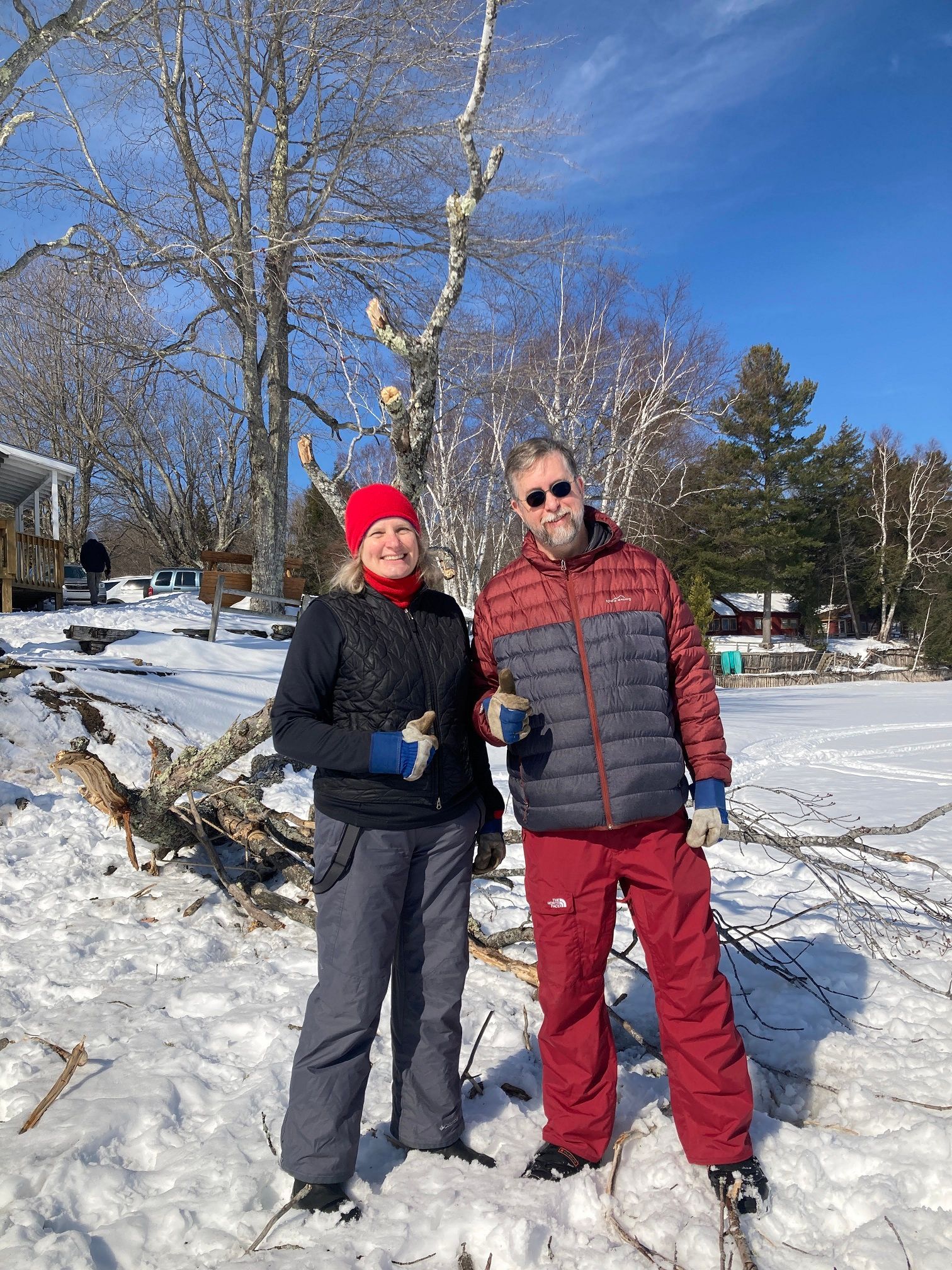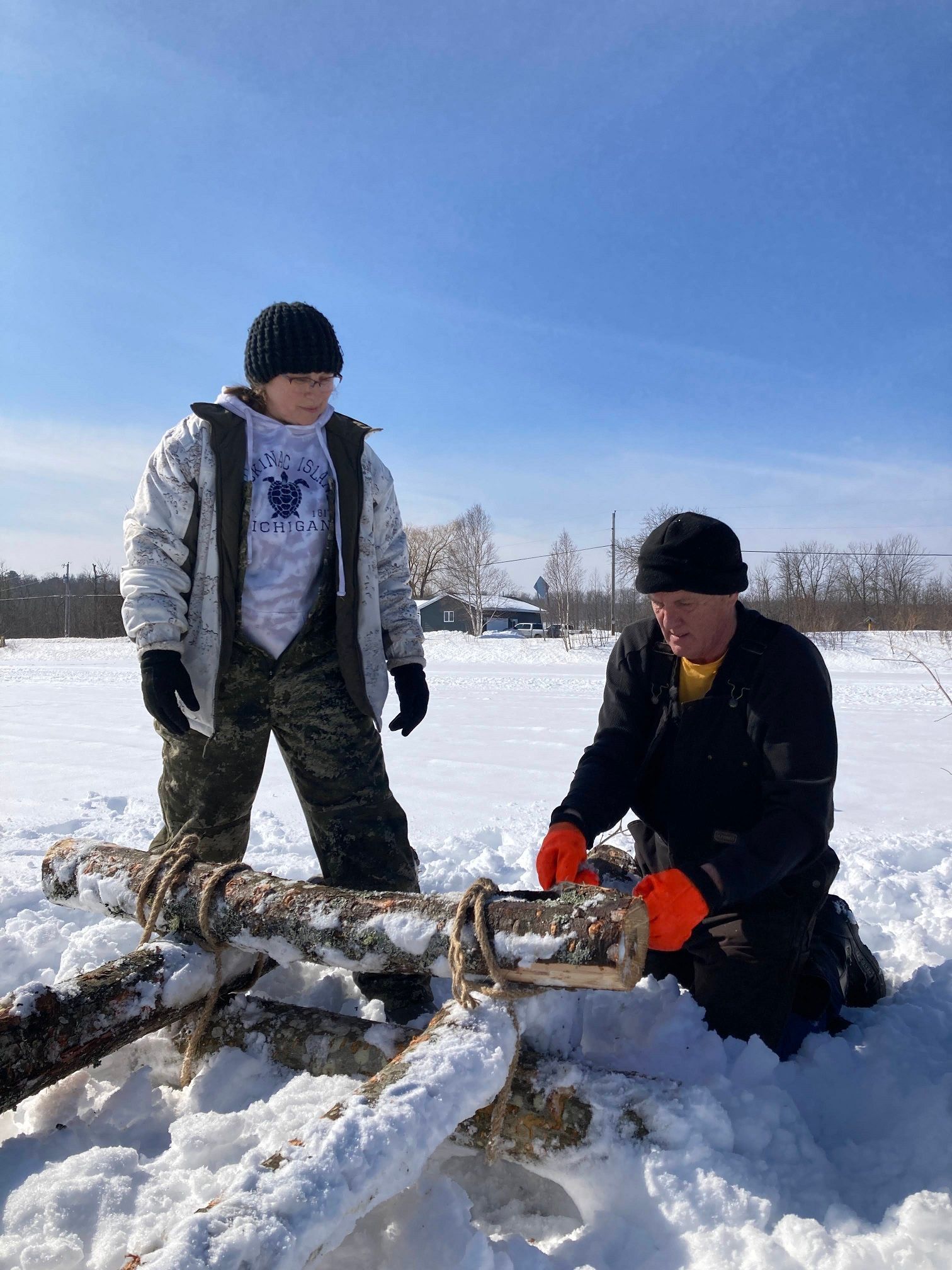On the Ground: Volunteers Improve Fish Habitat in Michigan’s Upper Peninsula
On Saturday, March 4, 2023, 30 volunteers joined MUCC’s OTG program in partnership with the UP Resource Conservation and Development Council (UP RC&D) and Alger Conservation District for a volunteer stewardship day at Au Train Lake in Alger County.

House Representative Jenn Hill and Andrew Dalia pose in front of a dropped tree that will act as future fish habitat on Au Train Lake.
Volunteers created brush bundles/course woody debris structures that will be deployed throughout the lake, helping to boost fish populations and providing habitat for other aquatic species.
This project is part of an ongoing effort to enhance fish habitat in Au Train Lake using funds from a Fisheries Habitat Grant awarded to the UP RC&D by the Michigan Department of Natural Resources (MDNR) Fisheries Division.
We were pleased to have volunteers join us from multiple conservation agencies, as well as local families who came out to participate and show support for the on-going habitat enhancement project.

Nancy Zander and Craig Kivi, President of Natural Shorelines Forever, work together to secure base logs for a fish habitat brush bundle.
House Representative Jenn Hill also came out to participate in these efforts, “It’s great to see volunteers coming out to support the hard work of conservation organizations and natural resource agencies by volunteering at Au Train Lake,” said Representative Hill. “We know that we’re making a difference and really making sure that we have long-lasting habitat here in Au Train. It feels good to do good!”
Sharing this sentiment was volunteer and President of local non-profit Natural Shorelines Forever , Craig Kivi, “We have seen the evidence of what happens when these structures are in the water and the explosion of life where there wasn’t any before…for us it’s very personal and we’re satisfied to be here and be a part of this project.”
MUCC’s OTG program was thrilled to be a partner on this project as meaningful partnerships are essential to on-the-ground conservation work. If you would like to learn more about how you can play an active role in conservation, click here .
The post On the Ground: Volunteers Improve Fish Habitat in Michigan’s Upper Peninsula appeared first on Michigan United Conservation Clubs.
Recent Posts



